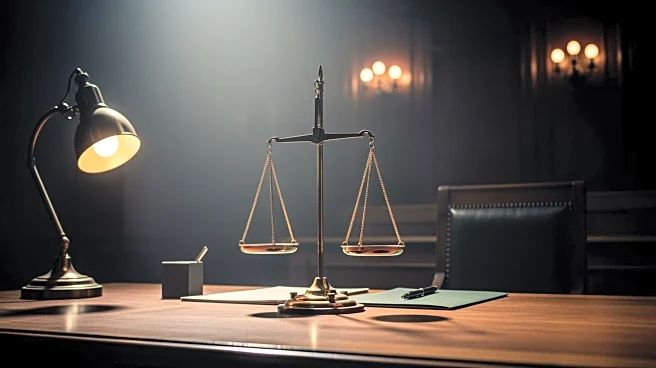What's Happening?
The film 'Nuremberg,' starring Rami Malek and Russell Crowe, is set to release on November 7, 2025. It is a psychological and legal thriller that delves into the events leading up to the Nuremberg trials of Nazi war criminals. The movie focuses on the interactions
between Hermann Göring, a high-ranking Nazi official, and U.S. Army psychiatrist Maj. Douglas M. Kelley. The film highlights the moral complexities and psychological dynamics of the trials, offering a timely reminder of the consequences established during the tribunals.
Why It's Important?
The release of 'Nuremberg' is significant as it revisits the historical Nuremberg trials, which set important legal precedents in international law, including the prosecution of crimes against humanity and war crimes. The film serves as a reminder of the importance of justice and accountability, emphasizing that 'just following orders' is not a valid defense for committing atrocities. It also explores the psychological aspects of the Nazi leadership, providing insights into how ordinary individuals can commit extraordinary crimes under certain conditions.
What's Next?
The film's release may spark renewed interest in the historical events of the Nuremberg trials and their implications for modern international law and justice. It could lead to discussions on the ethical responsibilities of individuals in positions of power and the importance of mental competency in legal proceedings. The portrayal of these historical events might also influence public perception and understanding of the complexities involved in prosecuting war crimes.
Beyond the Headlines
The film 'Nuremberg' not only revisits historical events but also raises questions about the nature of evil and the psychological factors that contribute to it. By focusing on the interactions between Göring and Kelley, the film explores the idea that the architects of the Nazi regime were not inherently different from ordinary people, but rather were driven by a lust for power. This perspective challenges viewers to consider the potential for similar dynamics in contemporary contexts.















